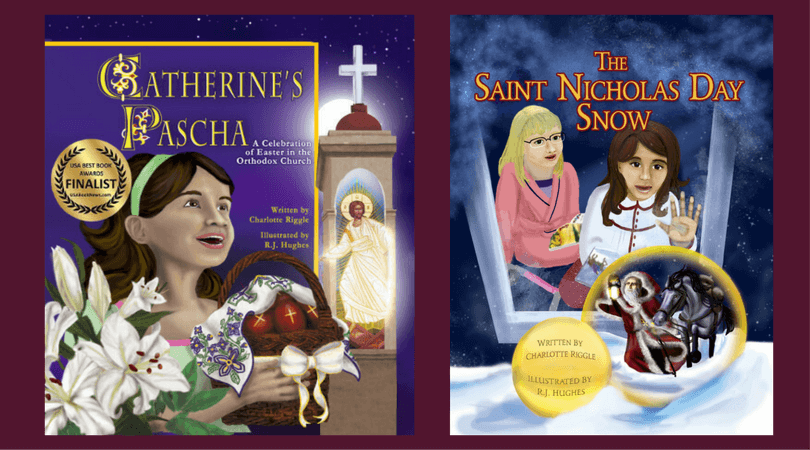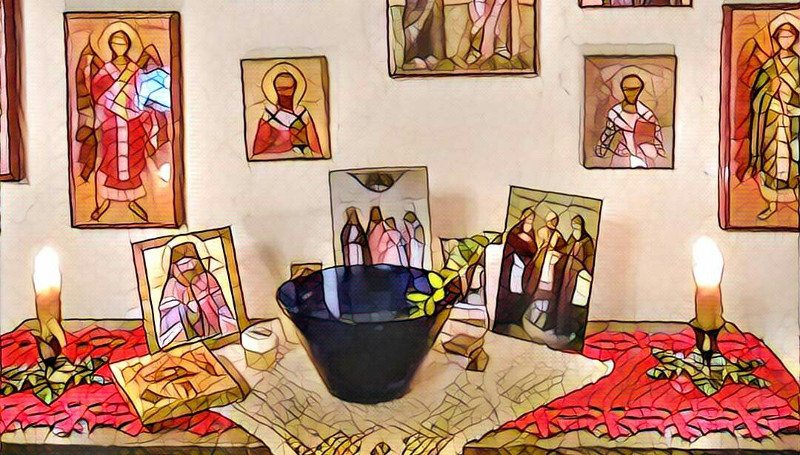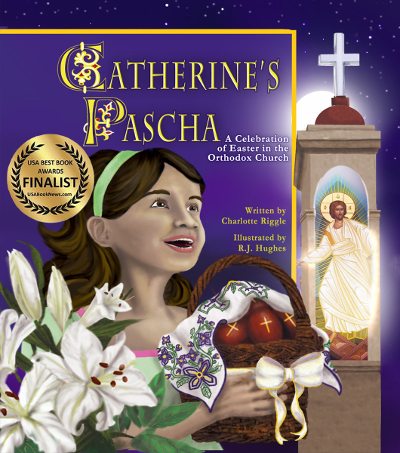We had our house blessed on Saturday. For most Orthodox Christians, the house blessing is an annual event. Some time between Theophany and the beginning of Lent, your priest comes to your home. There are prayers at your icon corner. Then the family and the priest process through the house. If there is a child in the family, the child leads the procession, carrying a candle (and likely dripping wax on the floors). The corners of every room get splashed with holy water, along with every window, every door, and every bed.
So Saturday morning, I did a little extra tidying. Because it’s not just the public rooms of the house that are blessed. Not just the rooms that are kept tidy and presentable, not just the parts that are company ready.
When you have a house blessing, every room gets blessed. Before the blessing, we open the doors to every room, and turn on all the lights. In every room. Even the laundry room, with baskets of dirty clothes on the floor and unmated socks piled on top of the dryer. And the unused bedroom that has turned into a jumbled up mess of a storage room, with the exercise bike and punching bag that nobody uses, boxes of Christmas wrapping paper, an old mattress on the floor, and the ironing board set up and ready to use. And the unheated room under the garage. For the house blessing, every door is opened. Every room is blessed.
Some people struggle to bear the shame of the mess that they live in, day in and day out. They don’t want anyone to know. So they spend the days before their house blessing frantically cleaning. And they consider whether they really want to open every door.
But those people miss something important about the house blessing. God doesn’t ask us to open our hearts and our homes to Him in order to judge us. He doesn’t send the priest to inspect our homes and find them wanting. The priest comes to give us God’s blessing on us and our homes, in whatever condition we find ourselves in.
The Prodigal and Theophany
Sunday, the day after our house blessing, was the Sunday of the Prodigal Son. And the priest reminded us that, in the parable, God is the Father of the Prodigal Son. When his son returns to him, he welcomes him joyfully, embracing him and blessing him with rings and robes and a feast. The father surely knows where his son has been and what he’s done. His elder brother certainly knew. But the father welcomes him as he is, no questions asked. No judgment.
It’s significant, I think, that the house blessing is an extension of Theophany. At Theophany, Orthodox Christians the world over process to lakes and rivers and oceans. As Christ blessed the River Jordan when he entered the water for his own baptism, we renew that blessing every year.
The Jordan wasn’t blessed because the water in it was especially good or pure or holy. It wasn’t. The water was blessed because Christ entered it. And as the water that surrounded Christ flowed over him to the sea, and evaporated into clouds, and fell as rain on distant lands, all water, and all the earth, was blessed.
And we take that water into our homes, and as the priest throws it into every corner of our homes, every part of our lives is blessed. Not because we are especially good or pure or holy. But because Christ has entered.
Let’s open the doors to him with joy.
Read More
A dangerous story: The Prodigal Son: Jesus told us this parable because he wanted us to know that God’s love for us is not based on anything we do.
Christmas Eve and Theophany: In a bicalendar parish, Christmas Eve and Theophany fall on the same day.
Five Tips for a Merrier Christmas: When the holidays seem like too much of a good thing, what can you do to reduce the stress?
Buy the Books!

These delightfully diverse books provide disability representation (Elizabeth, one of the main characters, is an ambulatory wheelchair user). They also give Orthodox Christian children the rare opportunity to see themselves in books, and children who are not Orthodox the chance to see cultural practices they may not be familiar with.
Catherine’s Pascha
FINALIST IN THE 2015 USA BEST BOOK AWARDS
Catherine doesn’t like vegetables. She doesn’t like naps. She doesn’t like it when her mom combs her hair. She loves hot dogs, chocolate cake, and her best friend, Elizabeth. Most of all, she loves Pascha! Pascha, the Orthodox Christian Easter, is celebrated in the middle of the night, with processions and candles and bells and singing. And Catherine insists that she’s not a bit sleepy.
Celebrate the joy of Pascha through the magic of a book: Catherine’s Pascha. Available on Amazon, Bookshop.org, and my webstore.
The Saint Nicholas Day Snow
Shoes or stockings? Horse or sleigh? Does St. Nicholas visit on December 6 or on Christmas Eve? Will a little girl’s prayer be answered? When Elizabeth has to stay at Catherine’s house, she’s worried about her grandmother, and worried that St. Nicholas won’t find her. The grownups, though, are worried about snow.
Celebrate the wonder of St. Nicholas Day through the magic of a book: The Saint Nicholas Day Snow. Available on Amazon, Bookshop.org, or my webstore.



